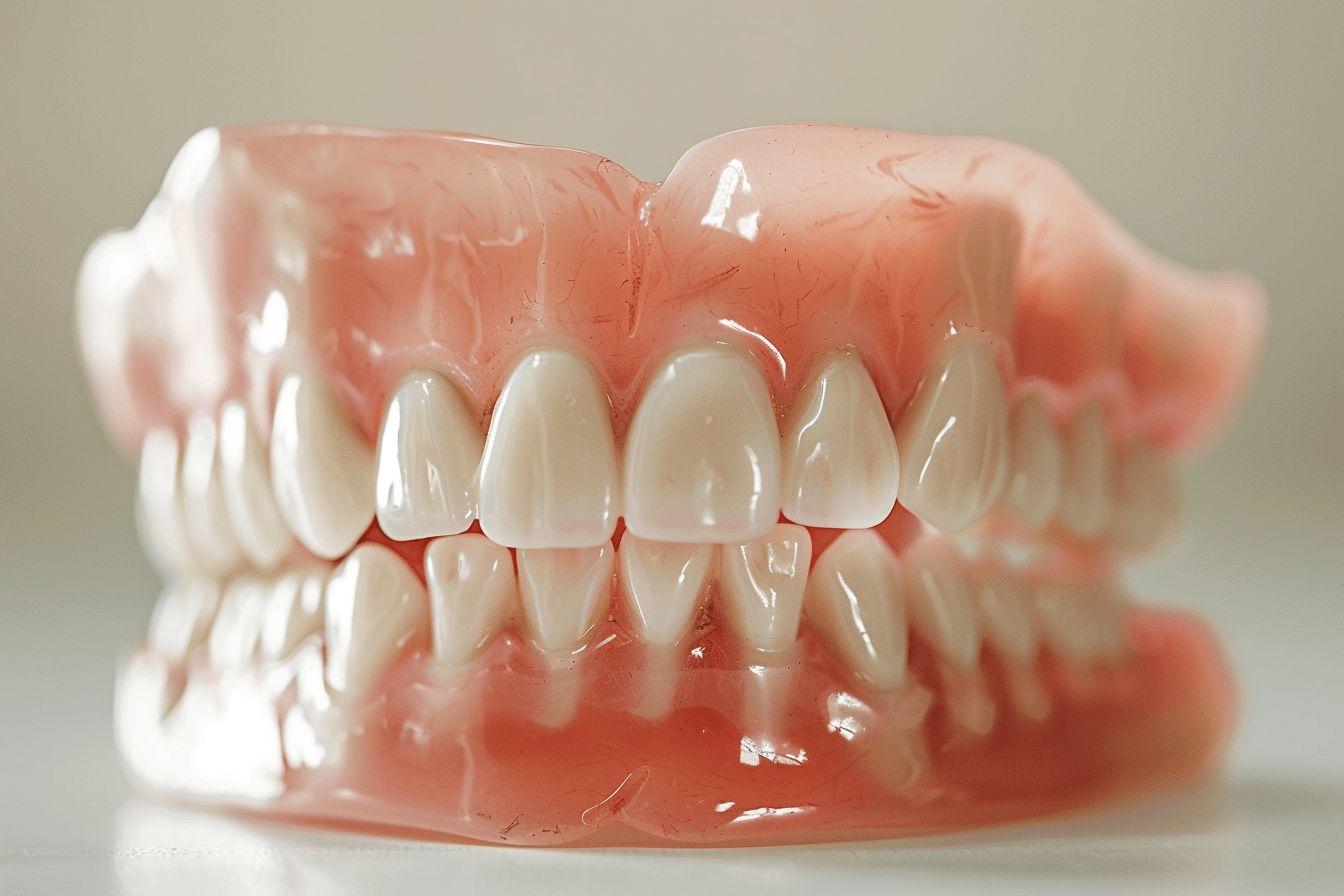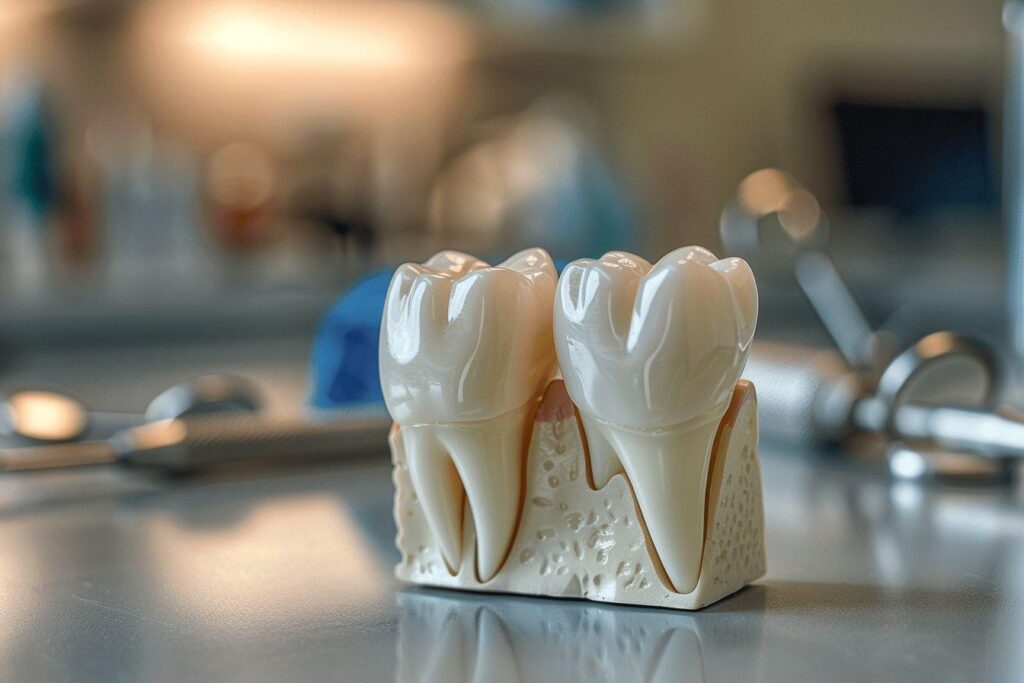Losing a tooth can be an unsettling experience, both aesthetically and functionally. Fortunately, a variety of replacement solutions are available to help restore a healthy smile and efficient chewing. Let’s take a look at the options available for replacing a missing tooth, their advantages and disadvantages, and the important considerations to take into account before making your choice.
Why replace a missing tooth?
Losing a tooth isn’t just a matter of appearance. It can have a significant impact on your oral health and general well-being. Here are the main reasons why it’s crucial to replace a missing tooth:
- Preservation of dental alignment
- Maintaining bone health
- Improving chewing and digestion
- Preservation of facial aesthetics
- Prevent speech problems
Failure to replace a missing tooth can result in the displacement of adjacent teeth, creating spaces that are difficult to clean and encourage the development of cavities. What’s more, the absence of bone stimulation can lead to a loss of bone density in the area concerned, potentially affecting the structure of the face in the long term.
So it’s vital to quickly consider a replacement solution that’s right for you. Fortunately, there are several options available, each with its own advantages and disadvantages.
Tooth replacement options
When it comes to replacing a missing tooth, there are three main options: dental implants, bridges and removable prostheses. Each of these options has unique features, suited to different situations and budgets.
Dental implants: a lasting solution
The dental implant is considered the closest solution to a natural tooth. It involves screwing a titanium rod into the jawbone, to which a crown is then attached. This option offers several advantages:
- Exceptional durability (several decades with proper maintenance)
- Appearance and function similar to a natural tooth
- Preservation of the jawbone
- No impact on adjacent teeth
However, dental implants also have a few disadvantages to consider:
- High cost (around €3,000), not reimbursed by Social Security
- Surgical procedure required
- Healing time of several months before crown placement
Bridgework: a fixed alternative
A bridge is a fixed prosthesis that rests on adjacent teeth to support a false tooth. This solution has its own advantages and disadvantages:
| Advantages | Disadvantages |
|---|---|
| Fixed, stable solution | Requires trimming of neighboring teeth |
| Natural appearance | Limited lifespan (approx. 10 years) |
| Moderate cost | Can be difficult to clean |
Bridges are particularly suitable when adjacent teeth already require treatment, or when implants are not an option for medical or financial reasons.
Removable prostheses: an economical solution
Removable prostheses, whether partial or total, are the most economical option for replacing one or more missing teeth. It offers a number of advantages:
- Affordable cost (€500 to €2,000)
- Non-invasive procedure
- Easy to maintain
However, this solution also has its drawbacks:
- Less comfort than fixed solutions
- Need for daily removal and cleaning
- Risk of loss or breakage
Removable prostheses are often chosen as a temporary solution while waiting for a more durable option, or as a permanent solution for people on a limited budget.

Choosing the best option for your situation
Choosing the most suitable solution depends on a number of individual factors. Here are the main factors to consider:
- General state of oral health
- Number and position of missing teeth
- Quality and quantity of available bone
- Available budget
- Personal preferences in terms of comfort and aesthetics
It’s essential to consult a dentist or dental surgeon to assess your specific situation. This professional will be able to guide you towards the most appropriate solution, taking all these factors into account.
Don’t forget that some dental prostheses are partially reimbursed by Social Security and mutual insurance companies. Check with your insurance company for details.
Care and durability of dentures
Whatever solution you choose, hygiene and maintenance are crucial to ensuring the longevity of your dentures. Here are a few essential tips:
- Brush your dentures and natural teeth thoroughly at least twice a day.
- Use specific cleaning products recommended by your dentist
- For removable dentures, remove and clean them after every meal
- Visit your dentist regularly for check-ups and adjustments if necessary
With proper care, your dentures can last for many years. Implants, in particular, can last for decades if properly cared for.
In the event of persistent discomfort or pain, consult your dentist promptly. Early adjustment or repair can prevent more serious complications later on.
Replacing a missing tooth is an investment in your health and well-being. By choosing the most appropriate solution for your situation and maintaining it properly, you can enjoy a brilliant smile and optimal chewing function for many years to come.

